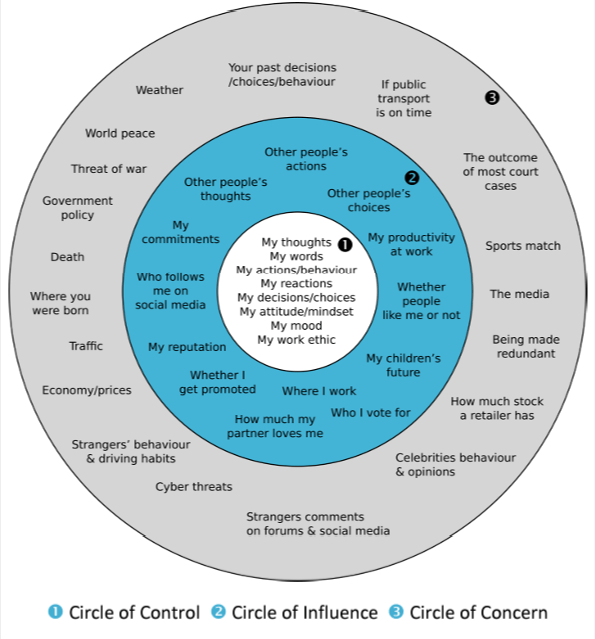For many of us during the pandemic and even now, we’ve spent the last few years with the hope that it wouldn’t be too much longer before everything went back to normal—or as normal as can be. But, with every forward step we take, there seems to be two more on the path than before.
Unfortunately, no matter how frustrating it may get, there isn’t much we can do to change what’s happening out there. The only thing we can control is ourselves and our reactions. But that can be hard to remember in the thick of the moment. Which is when patience is a virtue to have already developed.

So, why patience, specifically?
Patient is a Virtue in an Impatient World
The very world we live in is very impatient because everything is happening so quickly. Whether it is sending a message or email, ordering food in an app, purchasing something online, or any number of day-to-day things, we live in an age of pretty much instant everything.
So, what happens when things slow down? We get frustrated, irritated, and impatient. We want what we want now, and everyone between us and what we want may be the unwitting recipient of our frustrated impatience.
But being impatient is fine, right? Wrong!
What is the price of impatience?
More than time, it could cost money, respect, trust, all of the above, or even worse. Impatience is the ultimate self-sabotage. It clouds the judgment, detracts from your credibility, and damages relationships.
Suffering from impatience also means suffering from angst, anxiety, and the kind of aggressive rush to action that inevitably results in unnecessary mistakes.
Whenever I’ve been impatient, it has cost me far more time and money to unwind my hurried, emotional actions than it would have cost to just sit back, let things develop, ask the right questions, and gain a well-rounded perspective. The trick for me is to reflect often on those painful experiences to remind myself that a few lost minutes now are well worth any alternative scenario that being impatient might cause.
So, how do we develop patience in an impatient world?

Curbing Your Impatience
First, you have to learn how to curb your impatience.
Signs of Impatience
How do we know when we’re being impatient? More than likely, you’ll exhibit one of the following:
- Shallow breathing
- Muscle tension
- Hand clenching/tightening
- Restless feet/constantly moving legs
- Anger and/or irritability
- Nervousness and/or anxiety
- Rushing and/or pushing forward
- Quick/snap decisions
Strategies for Curbing Impatience
Once you start to recognize the signs of impatience, find strategies to avoid becoming impatient and letting it take over. Some ideas for curbing impatience include:
- Taking deep, slow breaths for a count of 10
- Focus on relaxing
- Be mindful of what is making you impatient
- Learn to manage your emotions
- Force yourself to slow down, speak, and move more slowly
- Make yourself wait
- Stop doing things that aren’t important
- Give others a chance to manage, speak, and act
- Use the saying, “Stay calm and move forward.”

Developing Patience
We’re told, as children, that patience is a virtue; however, rarely does anyone ever really show us how to be patient. Many of us have to work on our own to cultivate this trait.
We all know that we should relax and wait prudently to make the best logical move; but when emotions get involved, we sometimes can’t help ourselves.
Pause and Reflect
Patience is what helps us to have the mindfulness to stop for a while and reflect on the present moment. By being in the moment, we can consider the small and big picture so we can make better decisions. Sometimes that also means taking into account other people’s perspectives.
Regain Composure
Patience also helps us maintain our composure, regardless of whether we’re facing an irate customer or an online communication error. A lack of patience means we don’t have control of ourselves; a lack of self-control implies a lack of understanding; and a lack of understanding means we can’t plan, communicate, and set realistic expectations. However, having the tenacity to grasp all of these issues will help us claim the rewards that our patience can deliver.
Listen to Your Conscience, Not Just Your Gut
Your patience prevents you from simply jumping in with both feet. Instead, you will be able to hear that little voice telling you to take the time to evaluate your options and consider both the risks and the benefits. If anyone pushes you to make an immediate decision, your patience will send up a red flag and tell you it’s either not the right opportunity and/or the right time. Some people will push you to make a quick decision because they know that if you take the time to think about it you will never agree.
Ask Some Questions
The next time you’re about to make a quick pivot or respond to an email at lightning speed, pause, take a breath, and ask yourself some pointed questions instead. The first question to consider is, “What should I be asking about this situation that I haven’t yet thought to ask?” In this case, being patient is a smart way to avoid assumptions—assumptions that could ultimately lead to your downfall. Situations often become clearer as time passes.
In my experience, the rapid conclusion I reach is occasionally not as solid as I think. Sometimes, I overlook critical details, implications, or opportunities. Other times, I grow impatient and end up alienating the people I’m working with. So patience is a virtue for making the right decisions.

Patience is a Virtue in Communicating with Others/Fellowmen
When working with other people, how often do you deliberately pause to consider the perspective of the person sitting across from you? When was the last time you used patience as an opportunity to deepen your empathy and therefore position yourself to maximize the outcome of an interpersonal interaction?
Everyone is just trying to do the best they can right now. Assume that they are, even if their current version of best isn’t what you want it to be.
Being patient means we treat other people with high regard, and they will respond with loyalty and admiration to our brand (personal or business). Being impatient can mean driving people away, making the ones that stick around miserable, or just creating tension everywhere we look.
Patience is a Virtue for Keeping Great Employees
In the long run, putting in the effort to practice patience will lighten up the company culture so your team members will stick with you. It can also lighten up your favorite markets so the customer service will stick around and keep getting better.
Give people a chance and the benefit of the doubt, and they’ll often rise above the bar you set.
While you are working on Patience, you might want to consider these other core values for you and your company.
Insightful piece
Insightful piece
Comments are closed.